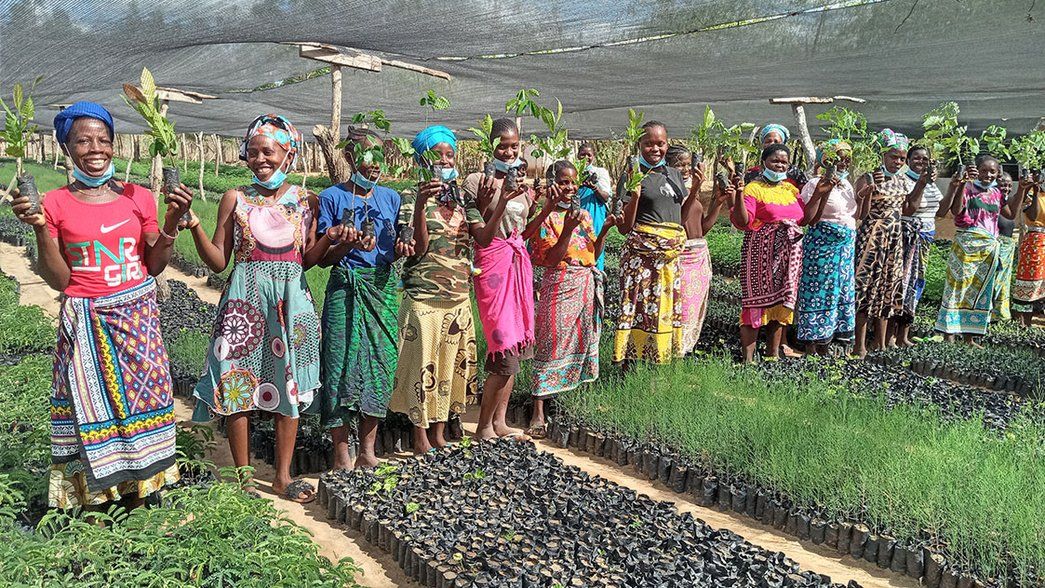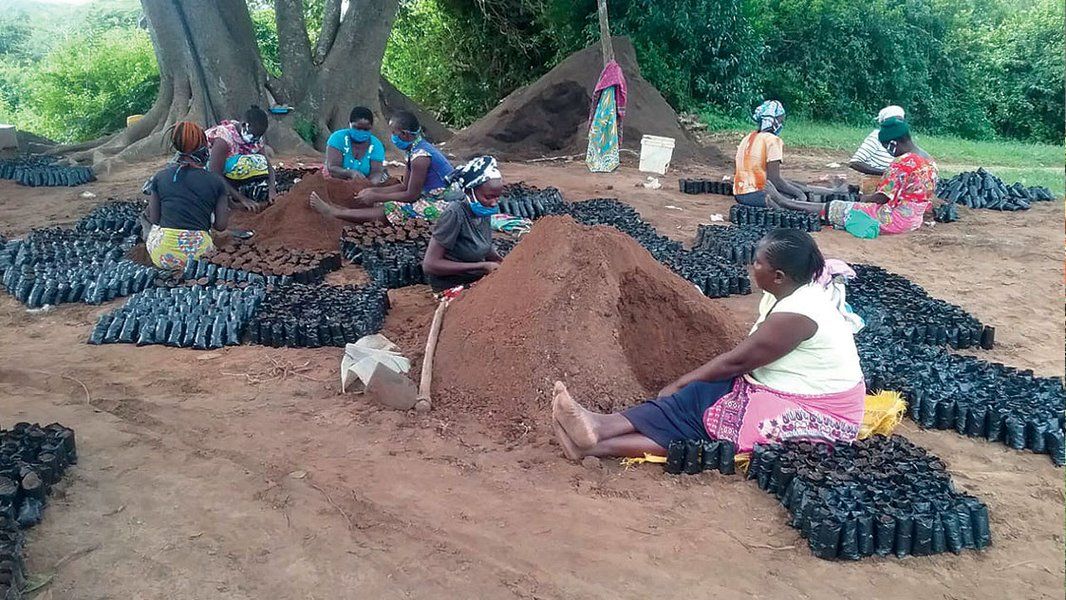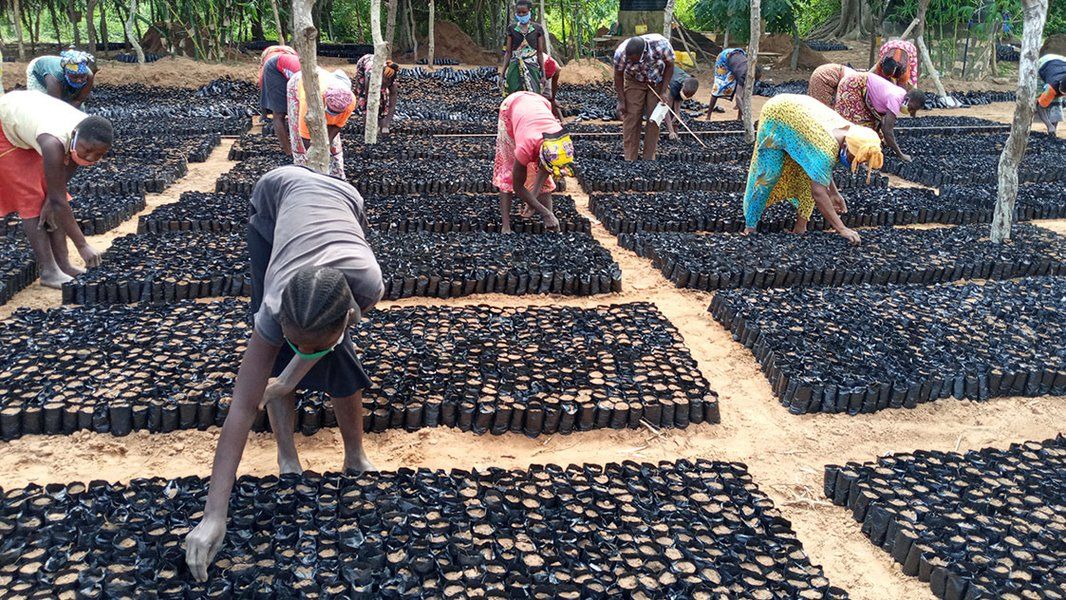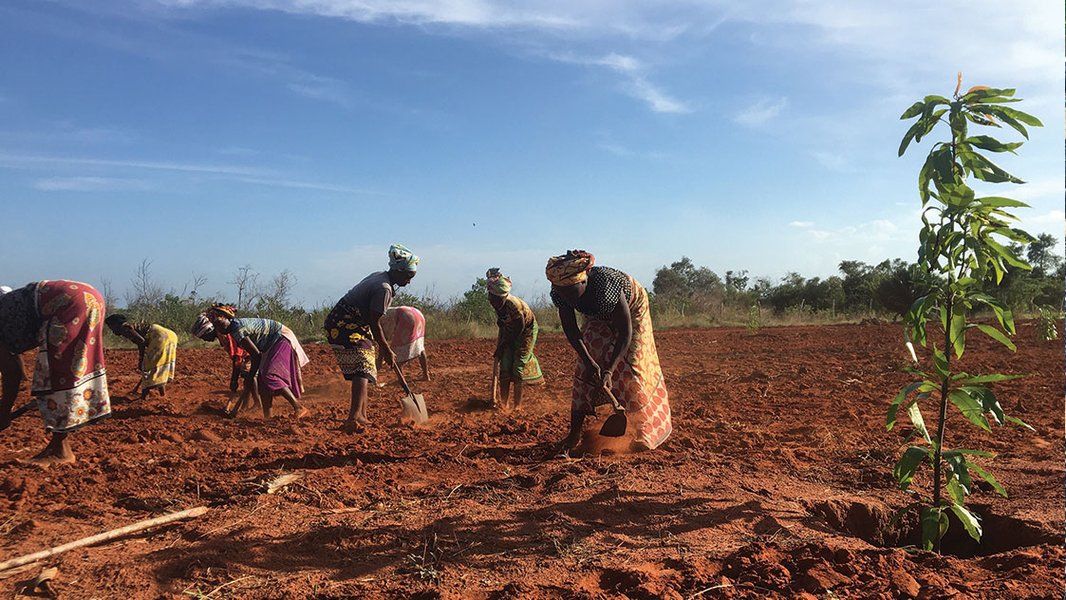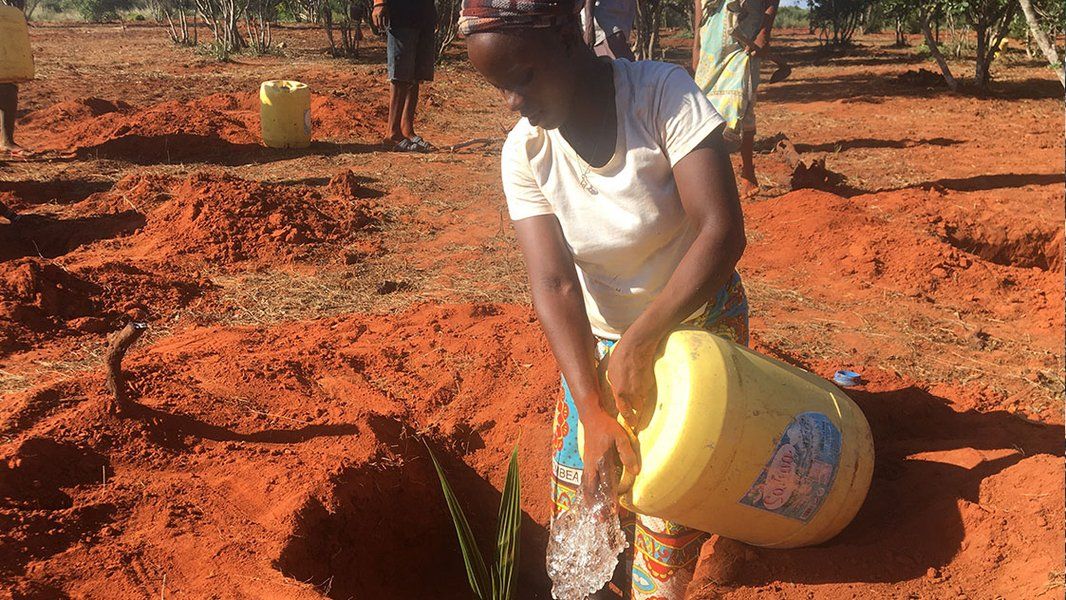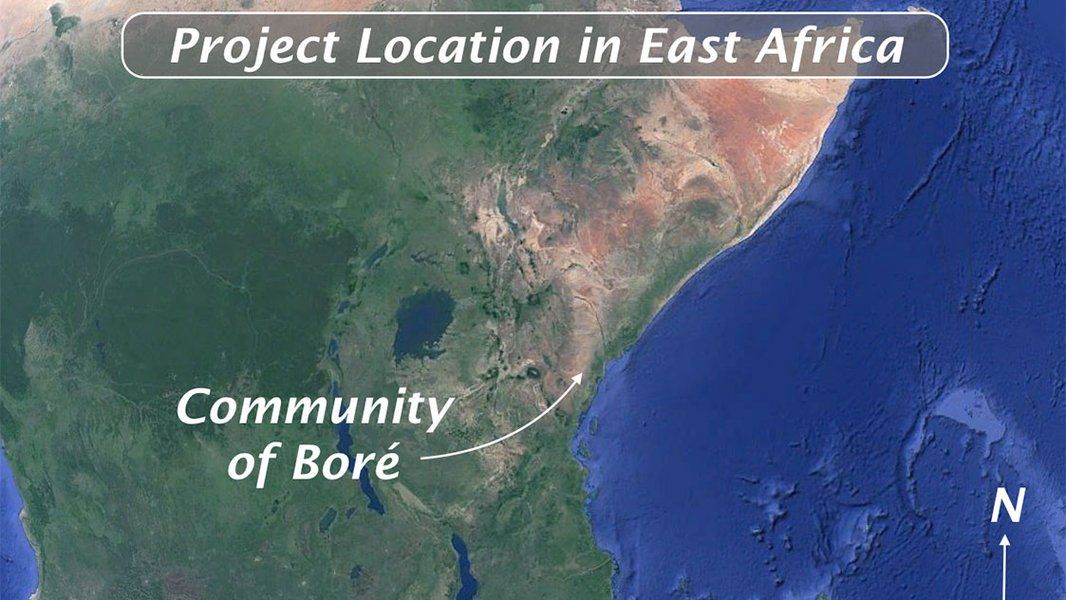The matchday programme has teamed up with CarbonLink – a not-for-profit reforestation organisation that specialises in helping communities in Kenya through consumption-replacement tree-planting.
CarbonLink have estimated that to offset the carbon consumption of the matchday programme, 12,500 trees – each absorbing 20kg of CO2 over the next ten years – need to be planted. We have committed to plant these trees, using the budgetary saving made by changing the Premier League programmes from “perfect bound” (square backed) to “saddle-stitched” (staples) – the format of the matchday programme for the vast majority of its 120-plus year existence.
The Arsenal Forest will be planted across 12.5 acres – the equivalent of 21.3 Emirates football pitches – in Bore in the Coast Province of Kenya, an area where CarbonLink works extensively. Not only will the tree-planting ultimately absorb CO2, the planting process will also greatly help the local community, with 60 of the poorest local women employed to propagate the seedlings in a community nursery. The trees, which are the drought-resistant neem variety, will also provide farmers with a cash crop of timber with which to buy food, pay for school fees and other living expenses – this is crucial as the fast-changing climate in East Africa is bringing more floods and droughts and affects farmers’ ability to grow food crops.
The trees will also hugely help the tropical forest wildlife of the region, supporting hundreds of other species in what is one of the most biodiverse ecosystems on the planet.
Green shoots
The Arsenal Forest won’t grow overnight, however. The trees are grown from seedlings and, as CarbonLink Director Ru Hartwell explains, the propagation process is a huge benefit to the local community.
“The trees being planted in the Arsenal Forest start life in our main community nursery,” he explains. “The propagation provides work for local women who have few other employment opportunities. The women are able to earn a good living and look after their children at the same time.
“Once ready for planting out, the scrub is cleared to reduce the competition for water. Then each seedling must be placed in a large, deep pit so that any rain that falls is captured and feeds the young tree. It is getting increasingly dry in East Africa these days so rainfall can be a scarce commodity. Each seedling is given a generous dose of water to help it through the first critical couple of weeks.”
The weather in Kenya is a far cry from north London, but the heat has its advantages.
“Down at the Equator it is hot and sunny almost every day and with no winter the trees are growing all year round,” says Ru. “These trees can grow – and absorb atmospheric carbon – up to ten times faster than trees in northern Europe, which is one of the main reasons that tropical forests play a key role in keeping the planet cool. After only a few years they can produce a harvest that will supports local families in the region.”
Want to stay up to date? In each matchday programme we will bring you more news of the Arsenal Forest as we monitor the growing, planting and maintenance of a little bit of Arsenal in East Africa.
Programme upcycling scheme
On the subject of matchday programmes, any that we don’t sell have traditionally been offered to our community projects as valuable resources. However, we would be more than happy to let supporters get involved in this ‘upcycling’ if they have a charity, school or community venture that could benefit from old issues and have the means to be able to collect them from the stadium. Please drop us an email to programme@arsenal.co.uk outlining where and why you would like to use the old programmes and we’ll be in touch!
Copyright 2024 The Arsenal Football Club Limited. Permission to use quotations from this article is granted subject to appropriate credit being given to www.arsenal.com as the source.




